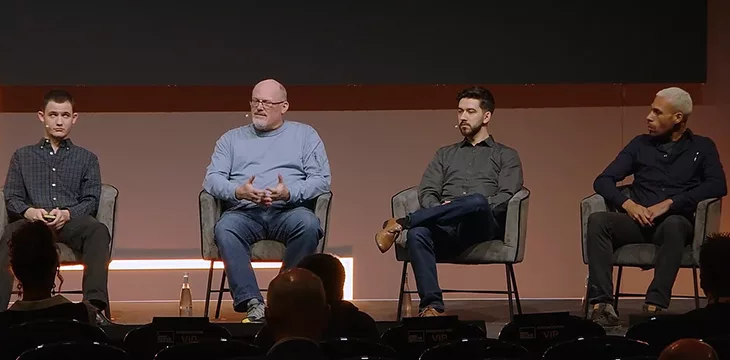|
Getting your Trinity Audio player ready...
|
Blockchain promises many solutions to many problems, and what is usually envisioned by mass blockchain adoption is that the technology underpins (and as a result, improves) many of the processes vital to everyday life. All-encompassing as this vision is, it’s clear that the ability of these promised solutions to integrate with other systems (and even each other) is a necessity. In other words, interoperability is key.
This was the topic of one of the earlier sessions at the London Blockchain Conference on Day 2: Exploring the Future of Identity, Contracts, and Assets on the MetaNet. Four technologists from the promising start-up Project Babbage participated:
- Ty Everett, founding president
- Michael Baefox, Chief Design Officer
- Brayden Langley, Chief Technology Officer
- Tone Engel, Lead Engineer
Project Babbage is a multi-service offering that focuses on distributed identity solutions, enabling users to own their own identities and data.

The Babbage session was, in essence, a deep dive on the more technical side of blockchain utilization.
The talk was broken into three broad categories: Identity. Smart Contracts. Assets.
First order of business was a discussion on identity. For this, Everett invited his Chief of Design Michael BaeFox onto the stage.
BaeFox started with an admission: ‘Michale BaeFox isn’t my real name. I’m acting through a pseudonym.’
“It’s not my intention to deceive you in any way. To be transparent, it’s a tactic to show to something about anonymity. When we act anonymously, we are not necessarily credible. I don’t know how much we think about that when we use the web today,” says BaeFox.
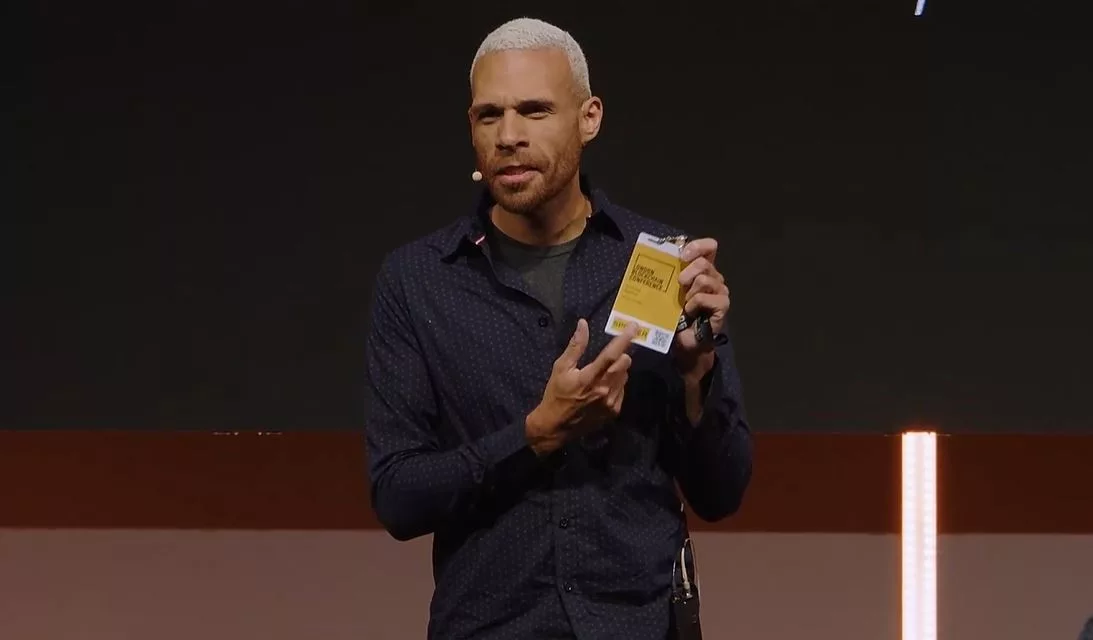
“Privacy is a very important thing on the internet,” said Everett.
“We share more than we want to on these platforms. Sometimes we aren’t in control of who gets to see what.”
‘We all deserve the control to share the information we hold dear to ourselves, that we feel is pertinent in various situations with the people that we trust,” adds BaeFox.
Identity is also the foundation of much privacy: for example, for encrypted messaging to mean anything, there must be some form of identity management involved to ensure that access is only granted to those individuals who should have access.
Enter Babbage’s first demonstration. Everett showed himself sending an encrypted mail from Babbage’s PeerMail account to that of BaeFox. When it arrived in BaeFox’s email, it came alongside an identity badge powered by IdentiCert.
IdentiCert is, practically, a third-party certifier that links various identities together under one profile. BaeFox, as the recipient, can rely on this certifier (or another) to verify the message’s source.
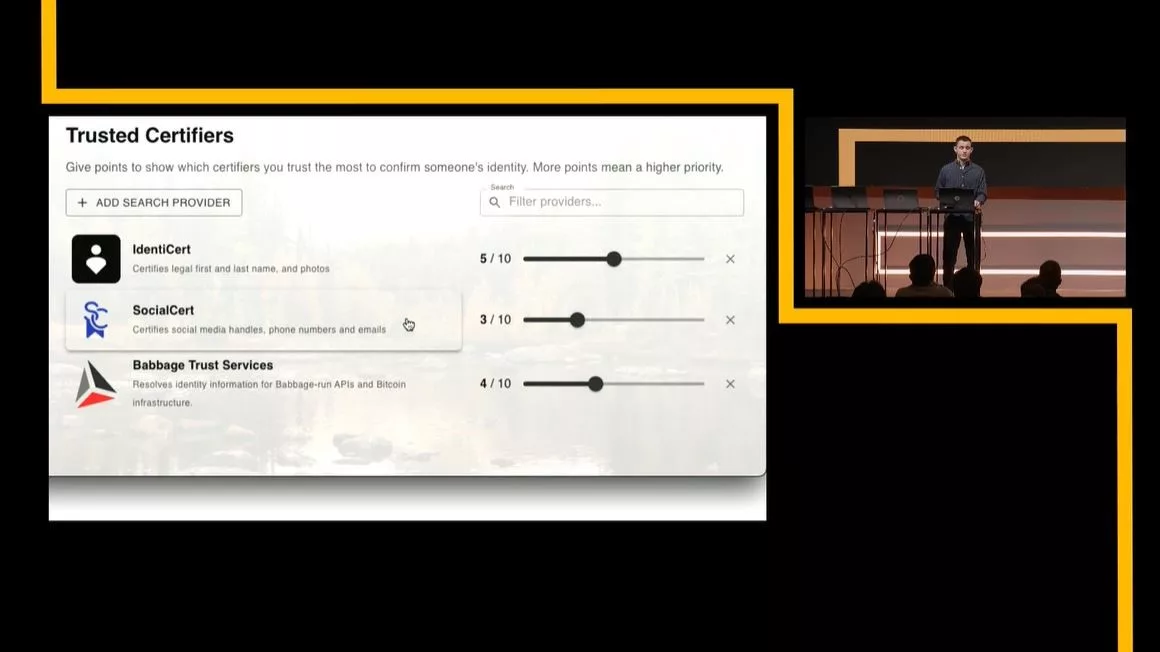
The key here is that identity is not siloed within PeerMail. PeerMail is making use of a certifier that, it is intended, would able to certify identity across apps.
This extended, as the presenters showed, to an app called PeerPay. BaeFox sent a payment to Everett using, again, a certified identity. On Everett’s side, the audience sees the payment coming into his account—initially, the sender is identified as anonymous, but as the certifier worked in real time to verify the identity, the audience saw ‘anonymous’ replaced by BaeFox’s smiling face.
On the backend, Babbage is making use of the Metanet backend.
“This permissioned system allows me to manage my identity across all the different apps and all the different people.”
Next up, Everett invites Project Babbage’s CTO Brayden Langley to discuss smart contracts, which is one of the key capabilities enabled by having interoperable identity.
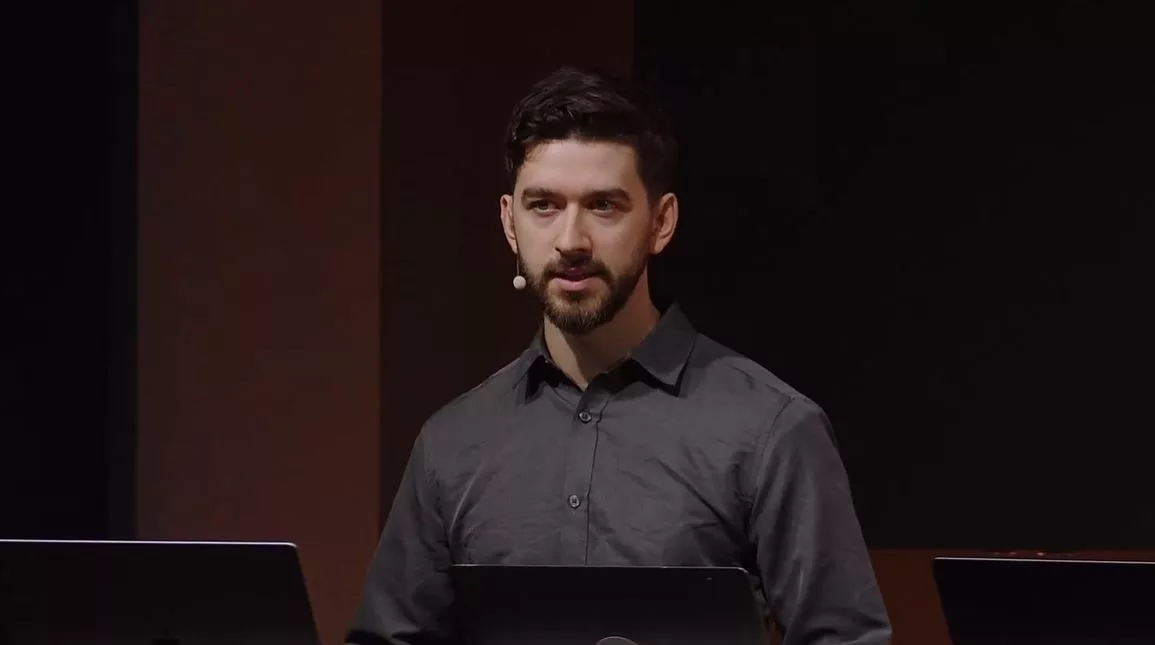
“Once you have user identity, you can form agreements with those people on the blockchain. We just did a blockchain transaction but if you’ve been around for more than a minute, bitcoin is about more than simple payments.”
Langley gives a high-level explanation of smart contracts. It can be formed, like any contract, between two or more people with clearly defined terms. There’s an offer, and there’s an acceptance.
Smart contracts, explained Langley, work very similarly. Everett and Langley demonstrate that they make a verbal agreement to bet a dollar each, with the winner of a coin flip claiming the total amount. Langley then walked the audience through the process of putting this simple agreement on the blockchain. Via a predefined interface, Everett pledges his amount, and Langley reciprocates. The coin flips, and Langley won. Immediately, we are told that, based on the outcome, the money will be released to the winning party. This execution requires no input from either party: it is entirely kicked off by the result of the coinflip.
The coin flip is a trivial example but replace the outcome of the coin flip with any number of pre-determined conditions that make up your average contract: i.e., payment is due upon transfer of X intellectual property.
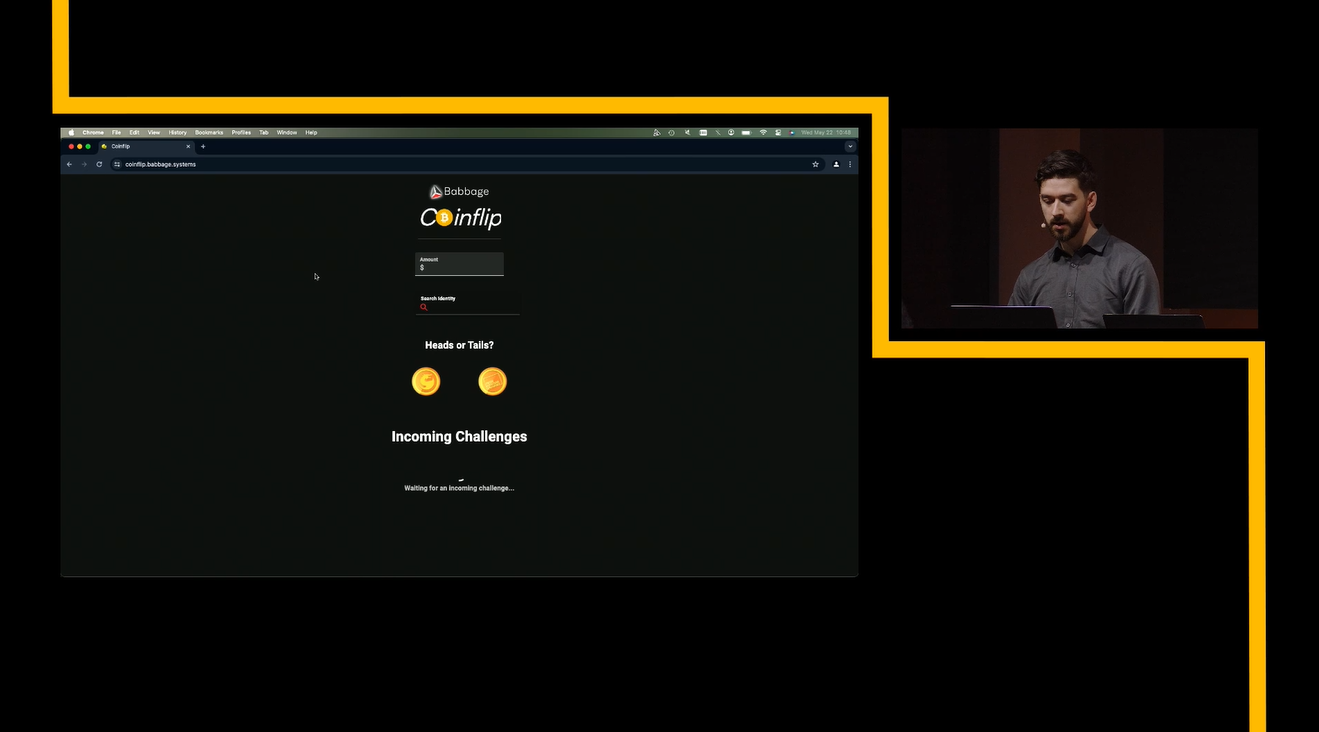
Next, Tone Engel, head of engineering at Project Babbage, took the stage to discuss digital assets. In particular, he introduces a toolset Babbage has been working on which allows you to easily add a payment button to, in the example shown on stage, a WordPress page. The utility of this is easily imaginable: imagine if a blogger wants to embed a simple tipping button on their site.

All that’s involved is going to the Gateway.Cash app, which allows you to create a button with a unique ID and in whatever style requested by the user. With the click of a button, the app produces a block of script that can be easily modified and can be copied into a WordPress page. Voila, the button appears on the page. The button is tied to the creator’s Metanet identity, and it will make use of the Metanet identity of anybody who comes to the page.
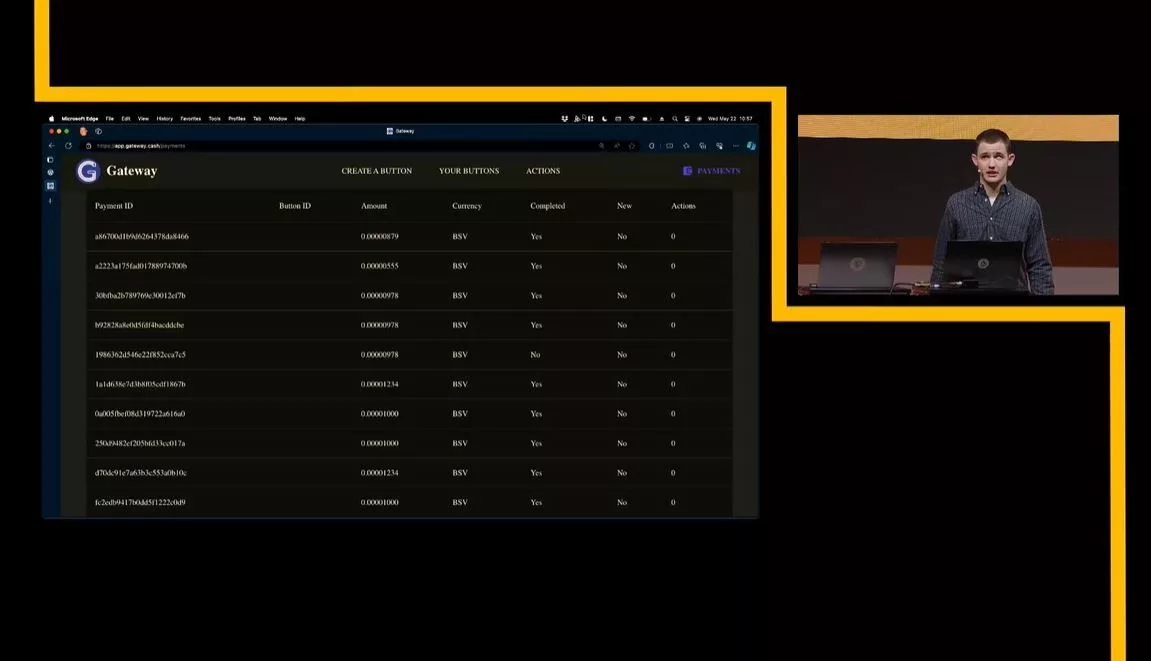
The presentation finished with one final announcement from Project Babbage.
Everett explained that micropayments are very powerful for artists. The ability to charge a tiny amount for each listen without needing to rely on a vast money-sucking ecosystem such as Spotify (NASDAQ: SPOT) has an obvious benefit.
That’s what Tempo is: imagine Spotify, where each listen of a track results in an immediate, person-to-person payment from listener to artist, without passing through any middlemen.
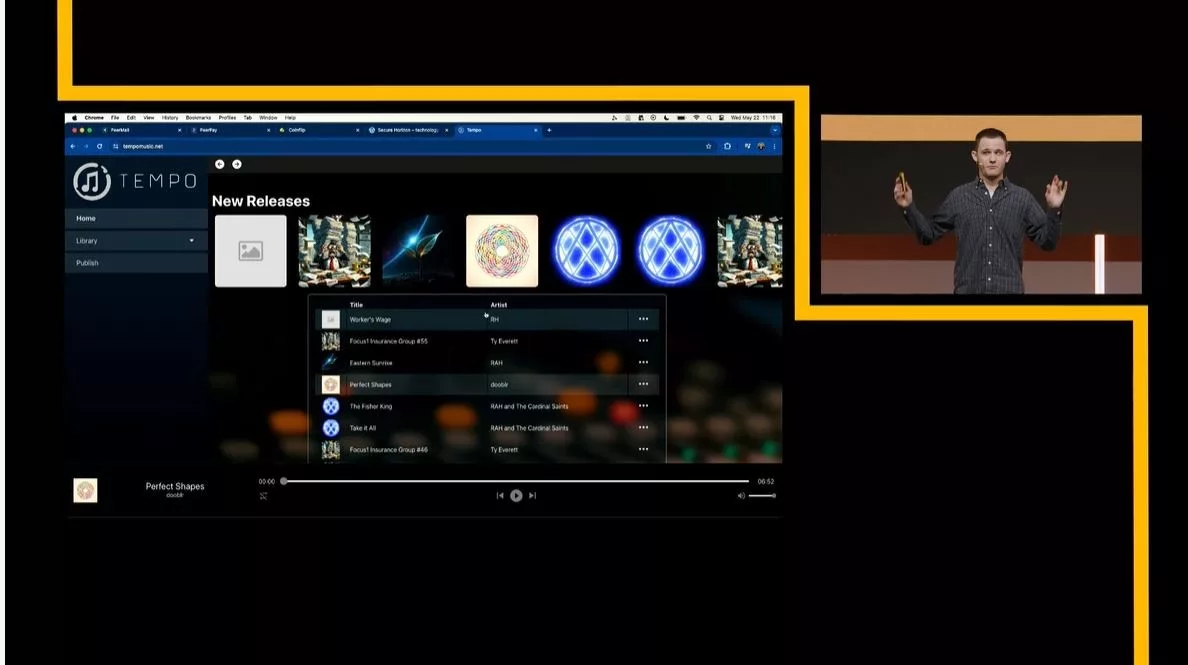
Watch Ty Everett: Users are going to see a better internet

 02-26-2026
02-26-2026 
